Heroin Rehab Options, Detox, and Addiction Treatment
The heroin epidemic has impacted communities across the nation. The drug has a powerful effect on the brain and body, resulting in addiction that can develop after just a few uses. Without heroin rehab and help for addiction, you might face serious health risks, including overdose.
Medically supervised heroin detox is a vital first step in your road to recovery. It helps manage withdrawal symptoms safely and reduces the risk of complications. Heroin addiction treatment should include evidence based therapies and medication assisted treatment. Peer support and counseling are also vital pieces of a heroin rehab program.
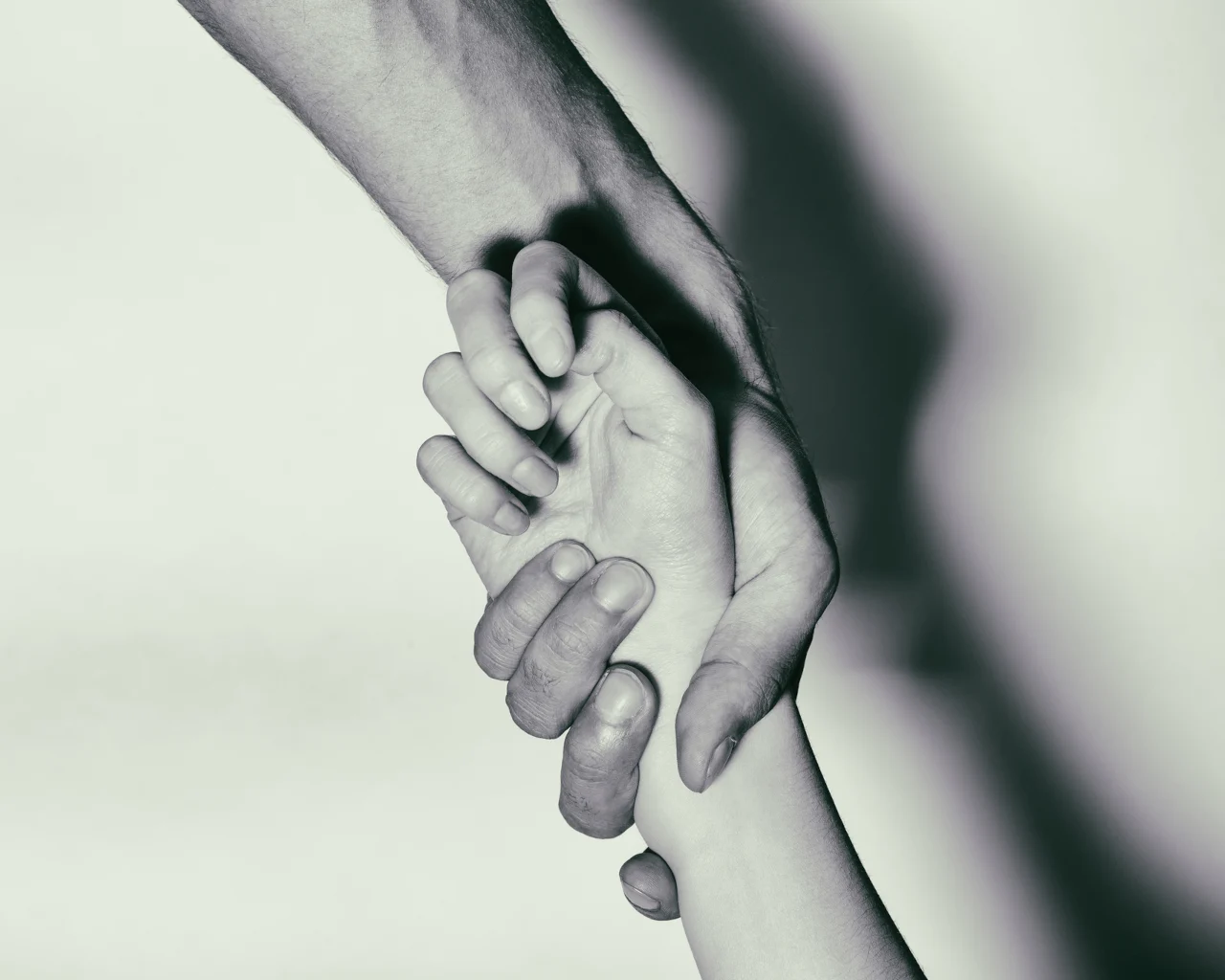
Heroin addiction is treatable, and recovery is possible with the right help. If you or someone you love is struggling with a heroin addiction, get professional help. With compassionate care and the right resources, you can take back control of your life.
What Is Heroin Addiction?
Is heroin addictive? Absolutely. Heroin is a highly addictive, illegal opioid drug derived from morphine. It quickly crosses your blood-brain barrier to bind with opioid receptors. This triggers intense euphoria followed closely by drowsiness and confusion. Repeated use changes your brain chemistry, disrupting the natural reward pathways.
The stages of addiction begin with the first time you use the drug. This could start with experimenting or misusing prescription opioids. With continued use, your body develops a physical dependence on the drug. This means you experience withdrawal symptoms when the drug is stopped.
Physical dependence can quickly progress to addiction, which is marked by compulsive drug use despite experiencing harmful consequences. It’s important to distinguish between physical dependence, which is the body’s adaptation to heroin, and psychological addiction, which involves intense cravings and a loss of control. Both conditions exist independently, but heroin addiction typically includes both elements.
Heroin addiction can develop with just a few uses. Recognizing the signs of heroin addiction and seeking timely help is crucial. Early signs may include:
- Sudden behavioral changes
- Weight loss
- Poor hygiene
- Visible needle marks
- Secretive actions
Why Heroin Is So Hard to Quit Alone
Quitting heroin addiction without professional help is extremely difficult because of the drug’s powerful grip on both your mind and body. Withdrawal symptoms can begin within hours of the last use. These symptoms often drive you back to using, making relapse a serious risk. Withdrawal symptoms include:
- Severe muscle aches
- Nausea
- Vomiting
- Anxiety
- Insomnia
- Intense cravings
The cravings you experience are not just psychological. They are fueled by changes in brain chemistry that reinforce drug-seeking behavior. This means stopping heroin cold turkey at home is not just uncomfortable but potentially dangerous.
During withdrawal, you can experience life-threatening symptoms that require medical supervision, such as dehydration, respiratory distress or mental health crises. Without the structured environment of a heroin rehab and detox program, you may lack the support and resources needed to succeed. Treatment centers provide evidence-based therapies, medical care and emotional support to manage symptoms.
Understanding how to quit heroin safely begins by recognizing that addiction is a medical condition. It requires comprehensive care monitored by a medical professional. A professional detox program is often the first step in long term heroin addiction recovery. This provides a safe and supportive foundation for reclaiming your life.
Heroin Detox: What to Expect
Heroin detox is the first crucial step in addiction treatment. Detoxification refers to your body’s clearing the drug from your system under supervised care.
When you’re wondering how long it takes to detox from heroin, the answer varies depending on many factors. Withdrawal symptoms can start within the first 12 hours after the last dose, can peak between two and three days, and can last up to 10 days. Some people find some of the effects linger a little longer.
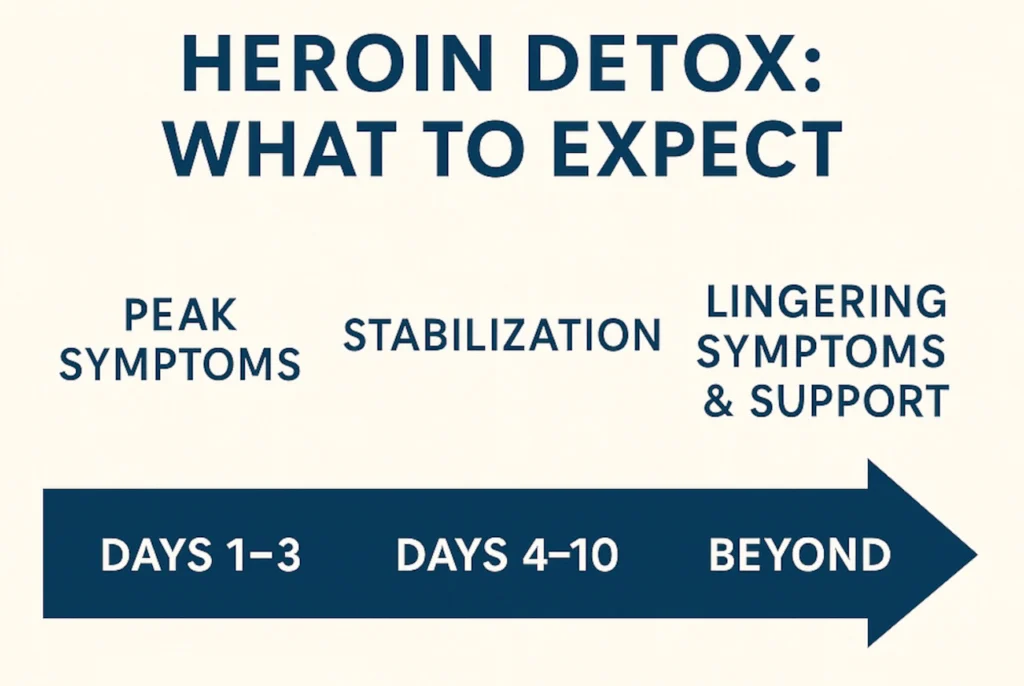
Since withdrawal symptoms can be intense and cause significant complications, a medical heroin detox program is recommended for some individuals. Under medical supervision, your vital signs are monitored and your symptoms are managed. The program likely includes medications like buprenorphine or clonidine to ease discomfort and reduce cravings.
This approach lowers the risk of relapse, or returning to drug use. It also provides a safer and more stable path forward.
A heroin detox program typically takes place in an inpatient or residential setting where 24/7 supervision is available. You’ll receive emotional support, hydration, nutrition, and medication as needed. These steps support your body’s detoxification and reduce the severity of withdrawal symptoms.
Understanding how to detox from heroin safely is essential to your sustainable recovery. Entering a medically supervised program improves outcomes significantly. With professional help, the process is far more manageable and less dangerous.
Medications for Heroin Withdrawal & Cravings
Effective treatment for heroin addiction often includes medications that help reduce withdrawal symptoms and long-term cravings. Several medications can be used to make the process safer and more tolerable.
During long-term heroin addiction recovery, medication assisted treatment can play a vital role in reducing cravings and helping to prevent relapse. However, medications are most effective when used with evidence-based talk therapy and counseling.
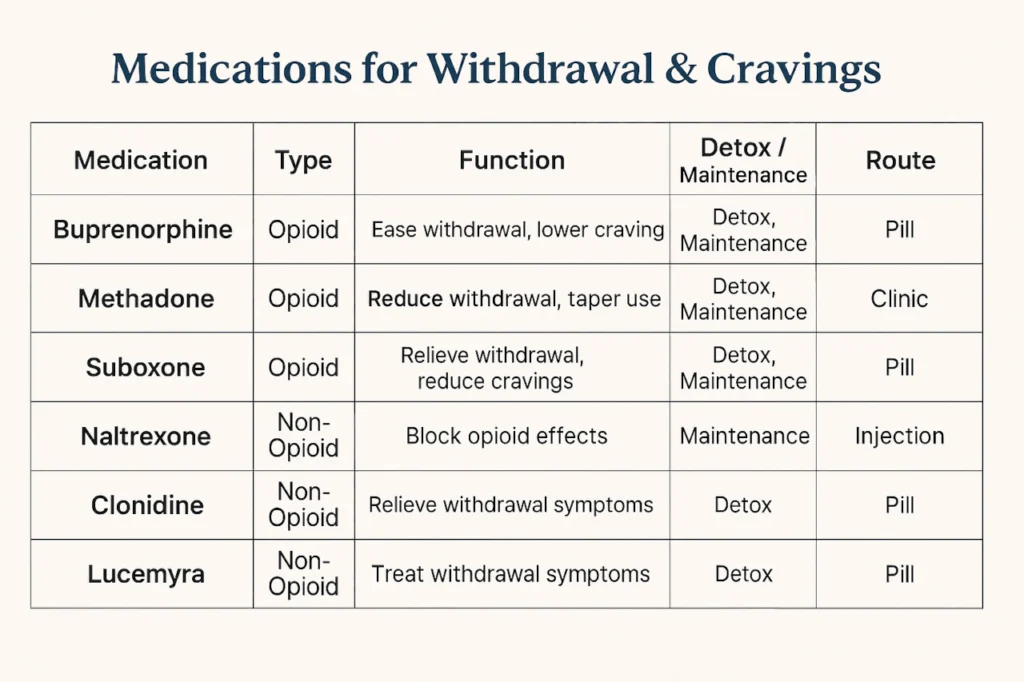
Buprenorphine: This drug may be used alone or in combination with other medications. It is commonly prescribed to ease withdrawal and lower cravings. It’s a partial opioid agonist, meaning it activates opioid receptors but with less intensity, reducing the risk of misuse.
Methadone: This long-acting opioid is used to taper your heroin use gradually while minimizing withdrawal effects. It works by binding to the same brain receptors as heroin but without producing a high. Methadone is typically administered daily at specialized clinics and is effective in reducing relapse when combined with counseling and behavioral therapies.
Clonidine: This non-opioid medication is prescribed to ease withdrawal symptoms. It does not reduce cravings but helps manage physical effects like anxiety, sweating, muscle cramps, and restlessness. By regulating the nervous system’s response, Clonidine lowers the intensity of withdrawal without producing euphoria. It can make the early stages of heroin addiction recovery more comfortable and manageable.
Lucemyra (lofexidine): This FDA-approved, non-opioid medication treats heroin and other opioid withdrawal symptoms. It works by blocking your body’s stress response, helping reduce symptoms like rapid heartbeat, sweating, and agitation. Lucemyra can play an important role in making the detox process safer and more tolerable.
Naltrexone (Vivitrol): This opioid antagonist blocks the effects of heroin by binding to opioid receptors without activating them. This extended-release injection prevents the euphoric high from heroin, helping reduce the risk of relapse. Unlike methadone or buprenorphine, it doesn’t lead to physical dependence and is used after opioids are fully cleared from your system.
Suboxone: This combination of buprenorphine and naloxone is used during detox and for maintenance in heroin addiction recovery. Buprenorphine reduces withdrawal symptoms and cravings, while naloxone prevents misuse by blocking opioid effects if injected. Suboxone offers a safer alternative to full agonists like methadone and is often prescribed in outpatient settings.
Heroin Addiction Treatment Options
Heroin rehab and addiction treatment involves more than just detox. It requires a full continuum of care to support long-term recovery. From medication assisted treatment to counseling, you can find support through structured programs at heroin addiction treatment centers.
These facilities provide customized heroin addiction treatment based on your needs. With the right support, environment, and tools for lasting change, you can rebuild your life.
Cognitive behavioral therapy (CBT): CBT helps you identify and change harmful thoughts and behaviors linked to heroin use. This therapy builds coping skills and improves decision-making, reducing relapse risk during recovery.
Contingency management (CM): CM reinforces sobriety with tangible rewards for drug-free behaviors. It’s a highly structured, evidence-based approach that motivates you and helps you maintain your recovery.
Motivational interviewing (MI): MI is a client-centered therapy that strengthens personal motivation for change. Therapists guide your exploration of ambivalence and commitment to treatment goals without pressure or judgment.
Trauma-focused therapy: This approach addresses past trauma that may fuel addiction. Therapists help you process a traumatic event and develop healthier coping mechanisms during your recovery.
Dual diagnosis treatment: This integrated and simultaneous treatment is used when you have a heroin addiction and a mental health condition at the same time. This may include depression, anxiety, or PTSD. It addresses your physical, mental, and emotional needs for more effective and lasting recovery.
Group therapy and peer support: Group therapy connects you with peers in recovery. You share experiences, build community, and receive mutual support. It encourages accountability and reduces the isolation that is often linked to addiction.
Family therapy: Family therapy improves communication and trust, helping your family understand the impact addiction has had on you and the family unit. It helps rebuild relationships and support sustainable recovery by creating a stable home environment.
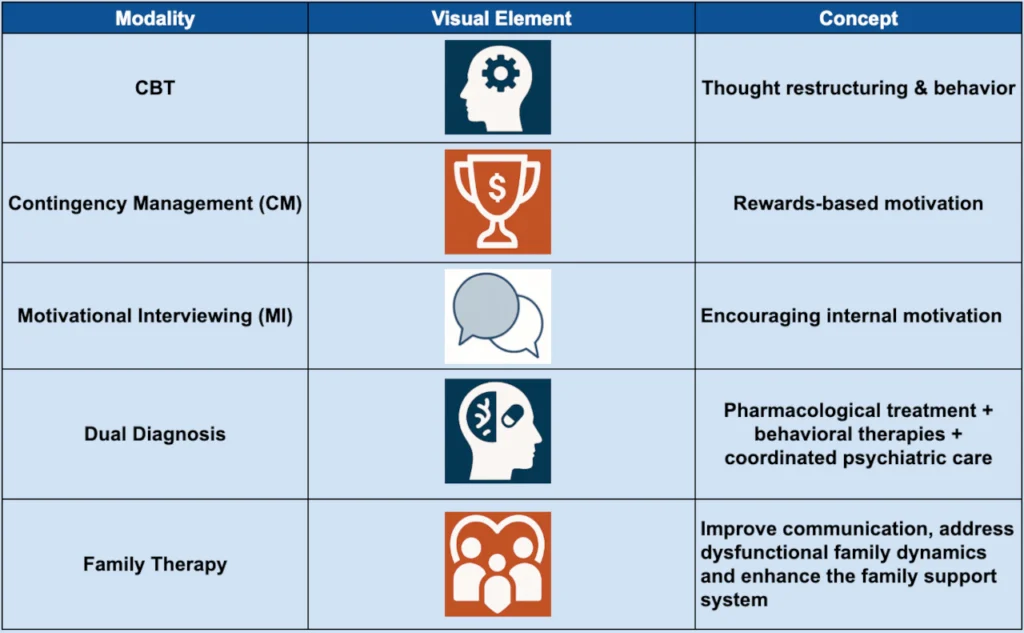
Aftercare planning: Aftercare supports long-term sobriety using support groups, sober living homes, and relapse prevention strategies. These services provide continued structure and accountability after treatment for heroin addiction.
Types of Heroin Rehab Centers
Understanding the different types of heroin rehab centers and choosing the right one is a key step toward recovery. There are several types of treatment programs, each designed to meet different needs.
An inpatient rehab program provides 24/7 care in a structured environment. It’s ideal when you have a severe addiction, past relapses, or co-occurring mental health conditions. You stay at the facility and receive intensive support, therapy, and medical supervision throughout your recovery.
An outpatient rehab program provides more flexibility and is often a lower-cost option. You live at home but attend scheduled therapy and counseling sessions during the week. This approach works best when you have a strong support system and stable living conditions.
When you’re selecting a heroin treatment center, look for a facility that:
- Has accreditation
- Is staffed by licensed professionals
- Offers individualized treatment plans
- Uses medication assisted treatment
- Provides behavioral therapies
- Includes aftercare planning
It’s important to find a heroin treatment center that matches your needs and ensures your safety. Inpatient and outpatient heroin addiction help centers should provide quality care and support long-term sobriety.
Finding the Right Heroin Rehab Program
Choosing the right heroin rehab center is essential for successful, lasting recovery. With so many options available, it’s important to ask the right questions to ensure the program meets your unique needs.
Start by asking if the facility provides medication-assisted heroin detox. Effective detox support can ease withdrawal symptoms, reduce cravings, and prevent medical complications. This is critical in the early stages of recovery.
Next, inquire about therapeutic approaches. Ask what therapies they use to treat heroin addiction. Look for evidence-based treatments like cognitive behavioral therapy (CBT), motivational interviewing (MI), or trauma-focused care.
It’s also important to understand the program’s structure. Ask if their treatment is provided on an inpatient or outpatient basis. Inpatient programs offer round-the-clock care, while outpatient options provide flexibility for those with strong home support.
Finally, be sure to find out if they offer aftercare or relapse-prevention planning. Ongoing support after treatment can be a crucial factor in long-term sobriety.
By asking these questions, you and your family can discover which rehab program is right for you. You’ll be able to find the most appropriate help for heroin addiction and take confident steps toward recovery.
Frequently Asked Questions (FAQs)
Heroin detox usually lasts five to 10 days. Withdrawal symptoms may begin within 12 hours of the last dose, and they peak near day two or three. However the exact timeline can vary based on the severity of your use, overall health, and whether medical support or medications are used during the detox process.
Heroin detoxification should be done under medical supervision because of the severe withdrawal symptoms you may experience. Inpatient medical detox programs provide 24/7 care, medications to ease discomfort and monitoring to prevent complications. Trying to quit alone can be dangerous and increases your risk of relapse or medical emergencies.
Signs of heroin addiction may include pinpoint pupils, drowsiness, sudden mood changes, weight loss and neglecting responsibilities. You may see physical symptoms such as needle marks, itching and slowed breathing. Behavioral signs include secrecy, borrowing money or withdrawing from family and friends. These signs and symptoms indicate potential heroin dependence and require professional evaluation and support.
Yes, heroin is highly addictive. It rapidly affects your brain’s reward system, creating intense euphoria and strong cravings. Repeated use quickly increases your tolerance and dependence, making it difficult to stop without help. Heroin addiction often requires medical detox and long-term treatment to manage withdrawal and prevent relapse.
Heroin withdrawal can last up to 10 days. Your symptoms may start in the first 12 hours after your last dose. Withdrawal symptoms are the worst between the second and third day and then gradually get better. However, psychological symptoms like anxiety or cravings may persist longer. How long the withdrawal lasts can vary based on your health, how often you used heroin and whether medical detox is used.
A heroin treatment center provides medically supervised detox, therapy, and support to help you safely withdraw and begin recovery. Services often include medication assisted treatment, counseling, relapse prevention planning, and aftercare support. These programs create a structured environment where you can heal and develop tools for long-term sobriety.
Finding this safe environment is easier than you may think. To locate a heroin treatment center near you, search the Treatment Center Directory by state. You can quickly connect to a rehab program that specializes in heroin addiction treatment.
More Specialty Programs

Teen Rehab
Addiction Treatment Programs for Teens More teenagers are using illicit drugs than ever before. According to the National Center for
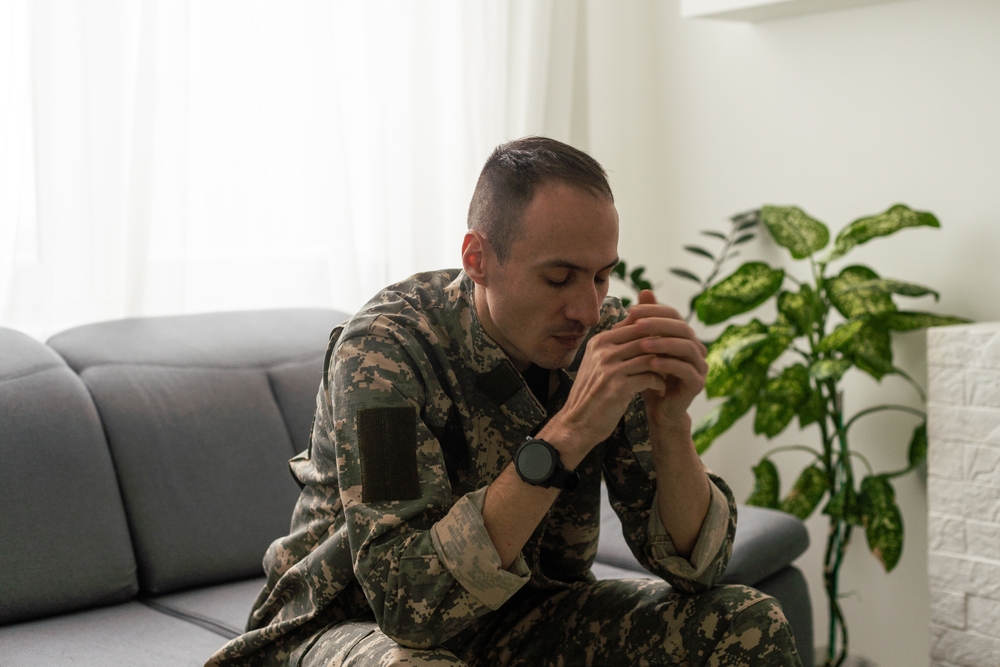
Veterans Drug Rehab
Addiction Treatment Programs for Veterans U.S. military veterans from all branches of service–Army, Navy, Air Force, Coast Guard, Marine Corps,
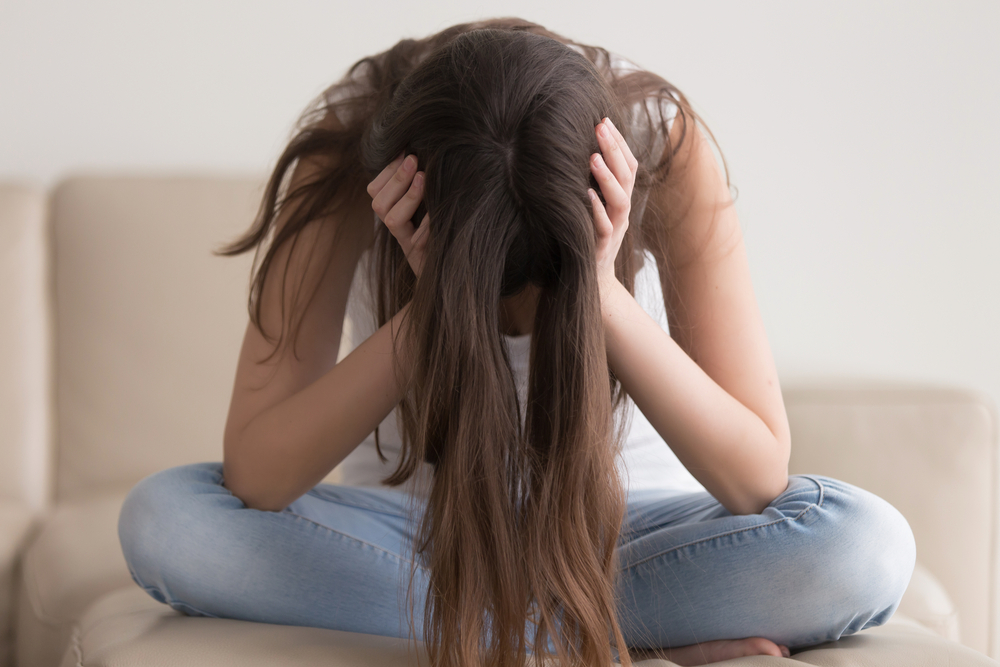
Depression & Addiction
Dual Diagnosis Programs: The Benefits of Rehab for Depression Mental health conditions, such as anxiety and depression are common among